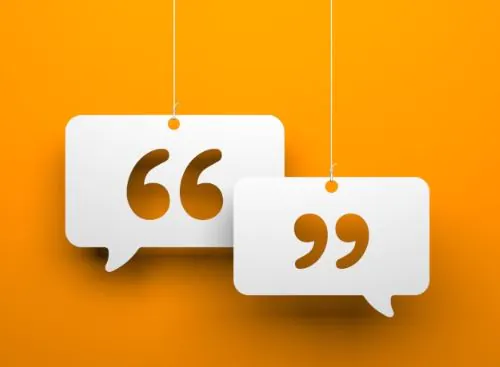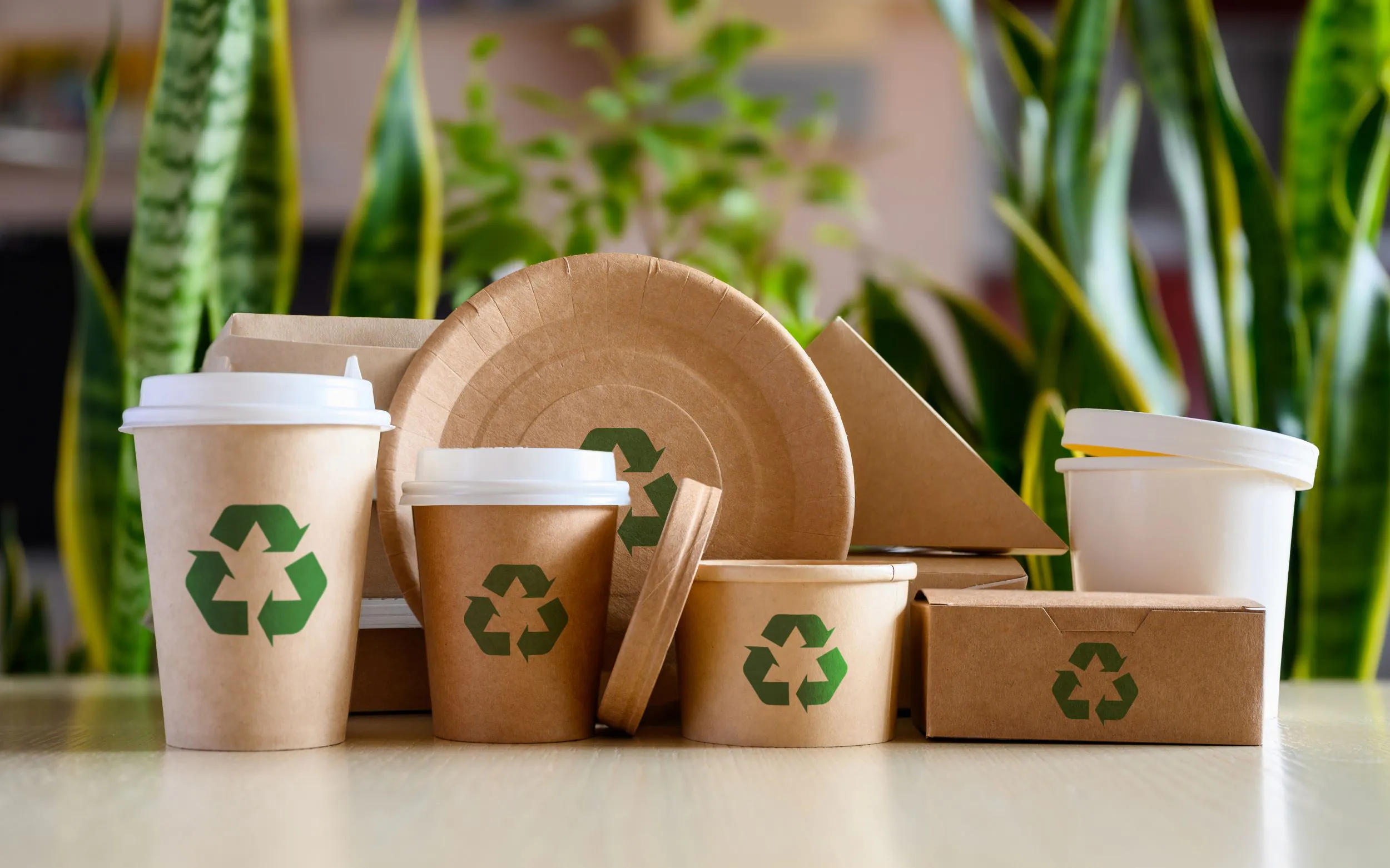B2B Buyer Definition
Figuring out the different types of buyers in B2B in 2020 has evolved and become more modernized. Understanding the modern B2B buyer may seem like a complex task but it’s actually never been simpler. What is a B2B buyer? What types of businesses do they operate in? How is selling to B2B buyers different from selling to B2C buyers?
In layman’s terms, a B2B buyer involves a situation where there is a commercial business-to-business (B2B) transaction between two or more businesses. For example, a tire manufacturer might sell merchandise to a car manufacturer. Another example would be wholesalers that sell their products to retailers who then turn around and sell them to consumers — the important part in that transaction was the B2B transaction between the buyer and seller.
How is selling to B2B buyers different from selling to B2C buyers? The typical characteristic of B2B that can differ from B2C involves:
- A longer path to purchase.
- Usually more technical in nature.
- Higher CPA’s.
- More logic-based and problem-solving oriented rather than emotional.
- Critical: Often contract-based
Businesses want to know how you can help them put more money into their pockets. So the approach needs to be focused on solutions from a problem-solving angle. In B2B, there is less concern on problem-solving and more focus on the value and pleasure of whatever product or service, whether the solution is addressing an existing problem or not. B2C is driven by consumer behavior patterns, whereas B2B is focused on current problems businesses are trying to solve.
Typically B2B buyers ask potential suppliers to submit formal proposals about their product and how those products can help the buyer’s business.
Is B2B more profitable than B2C? At BiVibe, and albeit arbitrarily, we’d say yes: “B2B eCommerce sales are expected to outgrow B2C eCommerce sales by 2020”. (Ecommerce Platforms)
Selling to different types of B2B buyers can be rather simple as long as you understand the various different types of buyers in B2B that your marketing and selling efforts need to influence in 2020. This post is for you if you and your sales team are trying to understand and figure out the different types of buyers in B2B you see in 2020.
Already know everything about buyers? Skip this stage and start connecting with buyers in 91��Ƭ�� right
4 Categories of B2B Markets
B2B buyers can either be for-profit or non-profit; to make the process as simple as possible, we decided to put all the different types of buyers in B2B in 4 major categories.
1. B2B Producers
B2B producers are typically B2B manufacturers that buy goods and services from B2B sellers and suppliers and transform them into other products. B2B manufacturers hold a unique position in the market, as they are an integral part of growing the economy in most cases. B2B producers buy, create, engineer, design and produce the products we all use today.
B2B producers can be broken down into 5 different categories of b2b markets:
Global Goods for Local Markets
- Industry: Chemicals, motor vehicles, trailers, transportation equipment, electrical machinery, appliances, and machinery equipment.
- These B2B producers manufacture automotive parts, appliances, etc.
- Represent the biggest sector of B2B buyer categories, as they top out at 34% of Gross Global Value Added (Source: McKinsey Global Institute)
These types of producers trade mostly local, so get started by visiting local trade shows, visit events hosted by your buyer’s potential audience, send out sales teams to offices, cold calls, and cold emails.
You could also simplify the process by using 91��Ƭ��’s B2B Buyers Directory to identify the 1st segment of B2B producers you can sell to.
Regional Processing
- Industry: Rubbers and plastic products, fabricated metal products, food, beverage, tobacco, printing, and publishing.
- These B2B producers typically need goods and services to help them manufacture food and beverage products, plastics, and printing.
- Trade is low intensity but can be complex with costly logistics and lengthy sales cycles.
- Focus is very local, so competition can also be low due to the consistent demand for fresh ideas.
- Follows global goods producers as the 2nd biggest B2B producer category at a Gross Global Value Added of 28%.
Energy and Resource-Intensive Commodities
- Industry: Wood products, refined petroleum, coke, nuclear, paper and pulp, mineral-based products, basic metals.
- These types of buyers in B2B manufacture refined-petroleum based products, nuclear-based products, and paper/pulp products.
- Low intensity overall but based on niche segments, it could differ. For example, in wood manufacturing labor intensity is high while it’s low in petroleum segments.
- Competition is very price-based. B2B sales teams need to offer competitive pricing and convey that in their marketing to convert this type of B2B buyer.
- Global Gross Value Added of 22%.
Global Technology Innovators
- Industry: Computers and office machinery, semiconductors and electronics, medical, precision, and optical.
- These types of B2B buyers produce computers and semiconductor products.
- R&D and Trade intensity is considered high.
- Competition can be tied to innovations in the industry. As a seller you want to take into consideration these B2B buyers are the cutting edge of technology and consistently seeking to innovate. Your sales and marketing approach needs to keep that in mind.
- Global Gross Value Added of 9%.
Labor-intensive Tradeables
- Industry: Textiles, apparel, leather, furniture, jewelry, and toys.
- These types of buyers in B2B manufacture apparel and textile products, furniture, toys, etc.
- Labor intensity is high in this segment.
- Traded globally with high intensity. These are buyers you are going to find all over the world.
- Global Gross Value Added is 7%.
All these businesses have to buy certain products to produce the goods and services they create. Keep in mind, the types of producers you are selling to and take these industry pointers for the correct approach for your sales team.
2. Resellers
B2B resellers are wholesalers, retailers, and brokers that sell goods and services manufactured by other companies without making changes to the product. These are B2B buyers that will buy your product in bulk and sell them to the consumers they are targeting and often a very popular buyer for B2B firms target as they can simplify the entire logistics process down to only a few individuals.
Resellers can easily be found online, as manufacturers are often looking for opportunities to sell their products away from just the Amazons and Wal-Marts of the world. Resellers often look for buyers that will move their product without having to worry about the hassle behind discounts that the big companies demand.
In tech, there are companies consistently looking for sales channel partnerships to help move more of their products and solutions.
Here are a couple of different ways to find resellers:
- Search Google for resellers by fine-tuning your keywords so you can find resellers in specific regions. For example, on Google, search “Car tires + USA”. Resellers often have an established reputation in either a specific service type or in a locale, so narrow your searches to that criteria.
- Search LinkedIn: Once you’ve found those companies, look up their team members on LinkedIn. Try and connect and message them explaining in a sentence what’s in it for them.
- Look at established enterprise companies’ web pages: Companies like Microsoft have entrenched channels and resellers working for them across the world. Find their partners and go after them as well.
- Check out 91��Ƭ�� to find reseller opportunities. Some of the processes mentioned above can be lengthy and time-consuming like searching and connecting with the right person on LinkedIn. On 91��Ƭ��, the process is simpler and can be done in its entirety for free with buyers on the platform.
.
3. Government Buyers
The central government is the single largest purchaser of goods and services in the world. The U.S. government is the single largest consumer in the world, purchasing over $450 billion dollars in goods and services annually. Canada also spends $240 billion annually on procuring goods and services.
Governments buy everything from aircrafts to paper clips, from training services to scientific research. Business-to-Government (B2G) often involve contracts. For example, buyers looking for services such as transportation or garbage collection at the state level for its citizens.
Here are some tips to keep in mind if you want to sell to the US Government:
- Register with the Central Contractor Registry at http://www.CCR.gov
- Consult the General Services Administration (GSA) Web site (http://www.gsa.gov), The GSA helps more than two hundred federal agencies buy a wide variety of products purchased routinely.
- Types of products the GSA helps with: office supplies, information technology services, repair services, vehicles, and many other products purchased by agencies on a regular basis
The process involves B2B sellers being active, you need to contact them and aggressively pitch your product to generate these government contracts. Typical purchases can exceed $25,000 as these types of transactions are high volume.
Pay attention to and learn the procurement policies when reaching out to these agencies and they all may have their own procurement guidelines.
4. Institutional Buyers
Institutional markets involve selling nonprofit organizations. Think of it as selling products to institutions like schools, hospitals, nursing homes, corporations like the American Red Cross. This usually involves massive supply issues – like how many rolls of toilet paper does a school need each month, etc. It applies to anything an institution might need – paper clips, food supplies, etc. A good example is cafeterias in the US and local government buildings, schools and universities, prisons, hospitals, or similar organizations. These B2B buyers are interested in buying local food and other products leading to lucrative marketing and sales opportunities for medium to large-scale firms.
To sell to institutional markets you can ex
5 Other Modern Types of Buyers in B2B
You have now identified the 4 major categories of b2b markets, now it’s the time to segment your audience further and key in on the specific type of B2B audiences you are likely to run into in your sales initiatives.
Afterall, Per CSO Insights “65% of B2B buyers said that they found value in discussing their situations with salespeople”.
pect these types of buyers in B2B to buy larger volumes of products with a lower process per unit making it a very lucrative and constant in-demand market.
5. Researchers
Who are B2B researchers? These are typically employees whose boss has asked them to research a specific product or service. Although these people usually do not have buying power, they have a lot of influence.
“64% of C-suite executives have final sign off, 81% of non-C-suiters are involved in purchase decisions” .
Reach out and speak to everyone because, in B2B, the buying process is lengthy and can involve researchers.
Researchers are usually people that visit your website and the people your remarketing approach is spending money on through paid ads. You want to make sure they can easily find what you offer. A good approach here, especially for inline is to always have updated pieces of content, datasheets, or decks that they can download and show to the final decision-makers at the company. Consider adding a downloadable document for your product offering or adding your product on a platform like 91��Ƭ��.
6. End Users
These are types of B2B buyers that are further along in the buying process [SG1] and are looking at your company’s reviews, comparisons, etc. Show off that your product works and that your end users are happy with their purchase.
Popular ways to target end-users are through case studies illustrating how your product helped others solve their problems. Other ways involve a quality Google My Business listing and reviews that highlight the benefit of buyers choosing you. Always include real reviews and try and to get into all of your local map pack top 3s for the areas you operate in. End-users are also all over the internet asking questions and submitting queries on platforms like 91��Ƭ��, Quora, Facebook and LinkedIn groups. They may be interested in attending webcasts and going through a demo – so have a section addressing that on your website.
7. IT Influencers
Are you operating in the technology sector selling software products and solutions? In that case, the customer’s IT team will want to know how your solution will impact their network. Always focus on solution-based marketing. How will your product simplify their problems? Is it easy to implement throughout the organization? How will it affect their network security?
The approach here can be technical but remember to remove the jargon anywhere necessary. These are types of people you want to conduct product demos with.
8. Finance decision-makers
These are people who want to know if your product will be worth the investment. Always be ROI-focused and include all the relevant material in your messaging from datasheets, whitepapers, case studies that demonstrate how you helped other investors make money, product brochures.
9. Executives
Keep it relevant to their business goals. Show executives proof that your product will lead to higher ROI and business results for their company. When approaching these types of buyers in B2B, the focus needs to be on key business challenges faced by their customers and how only your product can help solve them. You want to have white papers, case studies, real-world examples of your wins to convince executives to choose your business to deal with.
To reach all 5 types of buyers in B2B you need to create buyer personas for all of them.
Turn More of These Leads Into Paying Customers
Here at 91��Ƭ��, we innovated the modern B2B marketplace to make connecting to all different types of buyers in B2B simpler, smarter and more hassle-free. Join today to benefit from a list of features that will easily help you find and connect with B2B buyers online, including:
- The all-in-one sales intelligence platform: Target, Research, and Communicate with active B2B buyers
- Leverage detailed company insights for 1 million+ profiles receive real-time news alerts for your shortlisted suppliers
- Create prospect lists from scratch & upload your own lists.
- Receive real-time notifications for important news on your buyers



